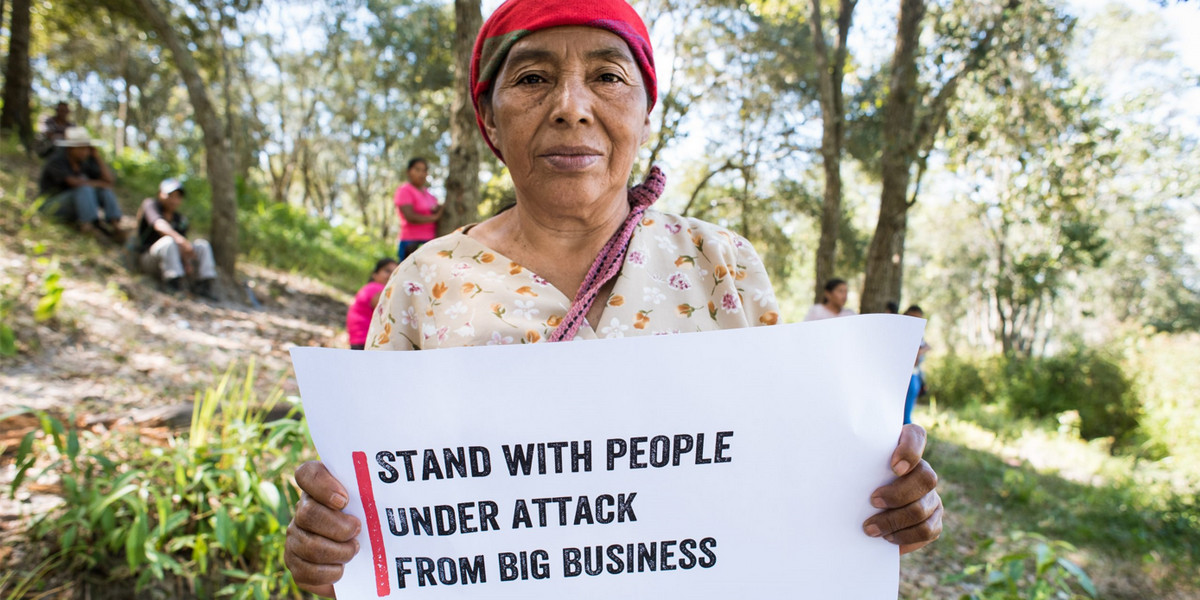This article has been written by Garry Walsh, Policy & Advocacy Advisor at Trócaire and was originally published on Trócaire’s website on 9 March 2022. (10 Min. Read)
Proposed new rules to prevent corporate damage to the environment and exploitation of people could be ground-breaking, but at present they risk becoming an ‘ineffective tickbox exercise’ for companies.
The EU is taking action on corporate damage to the planet and to people. The European Commission has recently announced its long-awaited new rules on corporate accountability, and this proposed new EU directive is aimed at cleaning up global supply chains and minimising the negative global impacts of business on workers, communities, and the environment. Communities around the world have been waiting years for these new EU rules. Fundamentally, we need to take forced labour, deforestation and oil spills out of our shopping baskets once and for all. The announcement of the new directive is a significant milestone, a major step towards introducing binding measures for companies, and it has huge potential to make responsible business conduct the norm. However, the draft rules don’t go far enough, and in its present form the directive is inadequate and full of flaws and exemptions. It’s essential that Ireland and our MEPs step up to try and strengthen this directive. Otherwise we risk this becoming an ineffective tickbox exercise for companies that won’t actually transform the situation on the ground for the people affected.
Here’s a snapshot of what the proposal looks like:
Positive potential:
- From voluntary to mandatory: the proposed directive marks a major shift away from purely voluntary approaches encouraging responsible corporate behaviour to binding human rights and environmental obligations for companies,
- Responsibility for activities overseas: the directive will enshrine the responsibility for due diligence by companies, not just for their own activities, but also along their supply chains,
- People and planet: the directive covers human rights and environmental standards and introduces mandatory transition plans for addressing corporate carbon emissions,
- Civil liability: victims of human rights violations will be able to take cases against companies in Europe for damages,
- Improvement on previous laws: the draft EU directive improves upon existing French and German laws, including a wider scope of companies, and extends responsibilities across entire supply chains.
Falling short:
- Applies to very few businesses: 99% of businesses will be excluded from these new EU rules,
- Dangerous loopholes: companies may be able to avoid court cases through signing contractual clauses with suppliers,
- Access to justice: the significant barriers to communities being practically able to take complex and expensive cases against EU companies remain unaddressed,
- Climate: enforcing corporate reduction of climate impacts lacks teeth,
- Gender-blind: the draft law doesn’t address specific challenges faced by women,
- Putting people first: it is weak on meaningful engagement with communities and protection of human rights defenders.
1. So, why does the EU need to take action on corporate abuse of human rights?
2. How will the EU Directive work in practice?
3. But will it apply to every business?
4. But would small and medium enterprises not be crippled with excessive bureaucracy if included?
5. Are businesses supportive of this law?
6. Will communities affected by exploitation and abuse be able to seek justice?
7. And what about corporate contributions to climate change?
8. But is it practical for a business to be able to assess human rights issues across their entire supply chains?
9. What will the directive do to protect women?
10. Will companies have to engage with communities?
11. Is there public support for strong laws?
12. What happens next?
13. How can I learn more?
1. So, why does the EU need to take action on corporate abuse of human rights?
Appalling human rights violations and environmental harm are happening across the world due to corporate activities, and at present, the EU is failing to protect people from abuse by corporations.
There are well documented cases of EU companies connected with human rights abuses and environmental damage, including oil companies like Shell in Nigeria, and TotalEnergies in Uganda. Furthermore, Irish based companies, such as the ESB and AirBnB Ireland, have also been linked to human rights and environmental abuses.
EU companies have a responsibility to respect human rights, workers’ rights and environmental standards wherever they operate. At present it is voluntary for companies to respect human rights standards, and as a result only 16% of EU companies carry out checks on human rights and environmental impacts across their whole value chain.
Corporations are not being held legally responsible for their actions and continue to operate with little accountability. Meanwhile affected communities struggle for justice and compensation.
This is why a new EU directive is needed to prevent abuses, hold companies responsible and allow victims to seek justice.
2. How will the EU Directive work in practice?
The ‘Corporate Sustainability Due Diligence’ directive proposed by the European Commission will create a new legal requirement for businesses operating in Europe to identify and prevent human rights abuses and environmental damage occurring in their operations, across all their supply chains, anywhere in the world. This is called mandatory human rights and environmental due diligence.
Due diligence is a process of identifying, preventing, ceasing, mitigating and accounting for the negative impacts of business activities, including those of subsidiaries, subcontractors, and suppliers.
Prevention: businesses will have to conduct due diligence which mainly aims to prevent human rights and environmental harm from occurring in the first place.
Accountability: victims will be able to take cases in Irish courts to seek remedy.
People and Planet: human rights standards will apply, as well as harms to the environment.
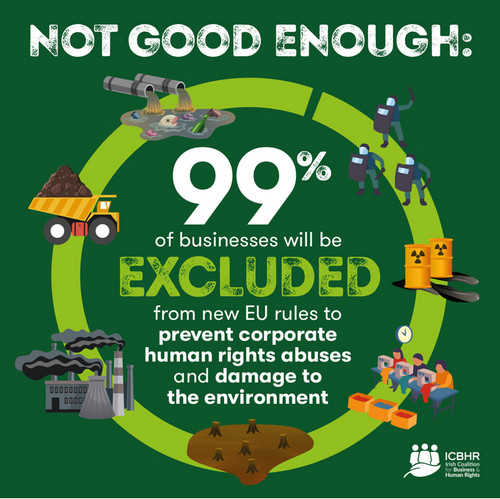
3. But will it apply to every business?
The proposed law will apply only to companies with an annual turnover of over €150 million and more than 500 employees. In high-risk industries (e.g. agriculture, fashion and mining), companies with more than 250 employees and a net turnover of more than €40 million would be covered. All other businesses would be exempt.
The European Commission has stated that if passed in its current form 99% of companies would be exempt. By limiting the scope to so few companies, the proposal turns a blind eye to many harmful business impacts.
The Irish Independent has reported that some large Irish businesses will be covered by the rules, saying that “fashion giant Penneys, mining company Kenmare Resources and energy firm Tullow Oil will have to assess and account for issues like deforestation, oil spills or forced labour anywhere in the supply chain that feeds into their business”. Yet based on latest CSO data, we estimate that less than 700 Irish companies will have to do checks.
Neither turnover nor staff size alone can properly measure a company’s capacity to harm human rights or the environment. For instance, the Dublin-based coal company CMC (Coal Marketing Company) has an annual turnover of over half a billion euro, yet only has 27 employees, so wouldn’t be covered by the new EU rules. CMC markets coal on behalf of the notorious Cerrejón mine in Colombia, where human rights violations and environmental damage have been well documented over decades.
It will be very difficult to clean up supply chains if so many businesses are exempt.
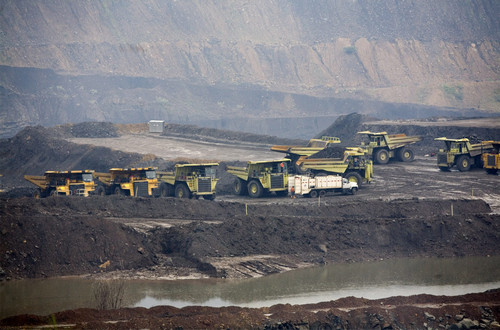
4. But would small and medium enterprises not be crippled with excessive bureaucracy if included?
No – due diligence requirements would be proportional to the size of businesses. This means that a small company would have fewer requirements than bigger companies.
The cost would also not be great. An EU study has shown that the cost of carrying out mandatory supply chain due diligence would be less than 0.14% of total revenue for small and medium sized enterprises.
Regardless of the cost to business, the cost of human rights abuses to both humans and the environment at present is immeasurable. Under the UN Guiding Principles on Business and Human rights, all businesses have a responsibility to respect human rights in their operations.
“The scope of application of the current proposal is limited and not fully aligned with the UN guiding principles on Business and Human Rights” .
Leading scholar Anita Ramasastry from the UN working group on Business and Human Rights in reference to the proposed thresholds for businesses.
“The blanket exclusion of a large amount of business entities means there is not, as of yet, a full ambition of a real level playing field”.
5. Are businesses supportive of this law?
Last month, over 100 high profile companies, investors, business associations and initiatives, including IKEA, Primark, Danone and Patagonia, called for ambitious and mandatory corporate human rights and environmental due diligence legislation from the EU.
They stated that “many European SMEs, including signatories to this statement, acknowledge that responsibility for human rights and the environment is not a matter of company size”, arguing that all businesses should be required to carry out proportional checks along their supply chains.
A level playing field is in the interest of businesses, as it would prevent businesses in one country undercutting their rivals in other countries, in areas such as workers’ rights and environmental protections.
6. Will communities affected by exploitation and abuse be able to seek justice?
Under the proposed law, companies could be held liable for harms committed at home or abroad by their subsidiaries and contractors along their supply chains, and their victims will have the opportunity to file lawsuits before Irish courts. This is very significant, and something civil society has been calling for a long time.
However, the draft law does nothing to address the serious legal hurdles that communities face to take such cases – including high costs, short time limits, limited access to evidence, and a disproportionate burden of proof.
“The Commission’s draft law promises a new path to justice and compensation for exploited, traumatised and injured workers and communities. But it ignores serious legal hurdles that make lawsuits costly, lengthy, and complicated.”
Claudia Saller, Director of the European Coalition for Corporate justice, in response to the draft directive.
“That is why the future law must be victim-based. If the law doesn’t make it easier for victims to hold businesses accountable, then it is unlikely to make very much difference. And this lack of accountability will perpetuate some of the most pressing issues in the world today, like child labour, pollution and the destruction of nature.”
Furthermore, a dangerous loophole risks making the law ineffective in preventing harm beyond the first tier of the supply chain – and impeding victims from holding companies liable. The draft directive implies that companies could fulfil their obligations by adding certain clauses in their contracts with suppliers and offloading the verification process to third parties.
What could this mean in practice? Experts fear that if an affected person (for instance, a garment worker exploited in a factory in South East Asia) tried to take a case against an Irish company (which for instance, had a controlling influence over the working conditions in the supplier’s factory) through the courts in Ireland, the case potentially might fail if the Irish company had simply signed contractual agreements with its suppliers further down the supply chain.
Companies should not be allowed to shift their responsibilities on to their suppliers or to get away with harm by participating in voluntary industry schemes. If companies can easily evade accountability through loopholes, the directive will lack real teeth, and it could become a paper tiger.
7. And what about corporate contributions to climate change?
The draft rules would force large companies to adopt a climate transition plan in line with the 1.5 degree target of the Paris climate agreement. This would be a very significant step in extending the Paris obligations beyond states to corporations. It could have a serious impact on the biggest polluters in Europe.
However, the proposal lacks teeth. It does not foresee any specific consequences for the breach of this duty, which risks making the climate duty ineffective. At present, companies won’t be able to be sued for climate-related issues.
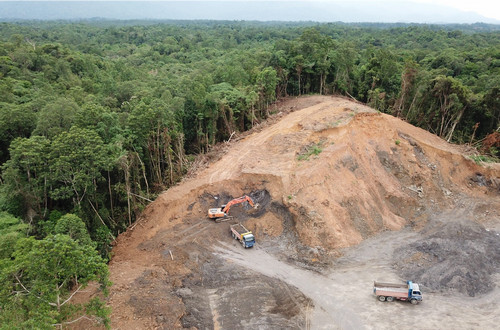
8. But is it practical for a business to be able to assess human rights issues across their entire supply chains?
When it comes to exercising quality control over their supply chains, most companies already have sophisticated systems in place to identify defective products and hold their suppliers accountable if a defect has occurred in the chain. Companies should treat this as a quality control issue – a product that has human rights abuses in its production process should also be viewed as defective.
Most severe abuses often occur on the lowest tiers of the value chain – in countries with less stringent rules, weaker state enforcement and higher levels of poverty. Many of the communities Trócaire works with are on the front line of corporate exploitation – they are experiencing rivers being poisoned, land being seized, forests being cut down.
As such, it is positive to see the due diligence obligations under the EU proposal extend through the entire value chain, covering subsidiaries and both direct and indirect business relationships.
However, there is a worrying loophole in how these business relationships along the supply chain are defined. The due diligence processes will only apply to ‘established’ business partners. This opens another critical loophole: as short-term relationships will not be covered, the proposal risks incentivising companies to switch suppliers regularly to avoid liability.
9. What will the directive do to protect women?
Women are over-represented in precarious work with poor working conditions and are vulnerable to exploitation and abuse, including sexual abuse. Women are also more vulnerable to corporate land grabs. Corporate accountability legislation should be gender responsive and should take into account the fact that human rights, environmental, and governance risks and impacts are not gender neutral.
Yet, the draft EU directive fails to acknowledge how women are disproportionately affected by abuses in global supply chains. The proposal lacks specific reference to the impacts of corporate activities on women – this is a very significant shortcoming which needs to be addressed.
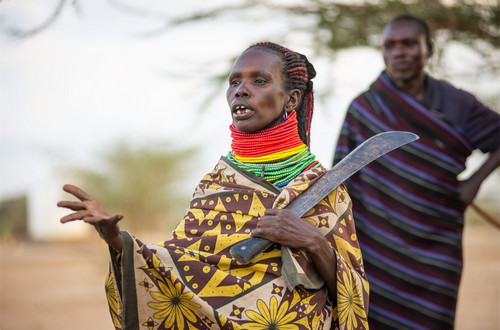
“we see oil being transported every day, and what we are saying is that we think it is helping somebody else, and we are just sitting here watching”. Photo : Garry Walsh
10. Will companies have to engage with communities?
The draft directive is weak on ensuring companies are engaging meaningfully with communities and other stakeholders such as human rights defenders and trade unions. It does not make it a requirement for companies to engage with affected communities, only saying that companies shall carry out consultations with potentially affected groups where relevant.
A corporate obligation to obtain consent from indigenous peoples when business projects may affect their land, territory and resources, is also missing from the text. Around the world, indigenous peoples are dispossessed or denied rights to their land and attacked, threatened, and killed for defending their territories, often from corporate activities.
The proposal also does not name human rights defenders as key to the due diligence process and there are no requirements to address the risk of reprisals against human rights defenders and other participants in consultations or complainants to grievance mechanisms.
Human rights due diligence is fundamentally about assessing and addressing risks and harms to people, rather than risks to the business.
11. Is there public support for strong laws?
Across the EU, more than half a million citizens and 700 civil society groups and trade unions asked the EU for a strong corporate accountability law.
In Ireland, a national opinion poll conducted through IPSOS/MRBI in June 2021 for the Irish Coalition for Business & Human Rights showed strong public support for strong new corporate accountability laws for Irish businesses, with 81% of Irish people believing that an Irish company acting unethically in a low-income country should be subject to regulation here in Ireland.
12. What happens next?
The directive when passed will have to be transposed into national law, meaning that Ireland will ultimately have to implement this as an Irish law. Yet the draft proposal has a long way to go still before being finalised. The proposal has to pass through the EU’s institutions, over to MEPs in the European Parliament and to EU member states in the EU Council. This means there is opportunity to address the flaws and loopholes, but also potential for the rules to be weakened even further still.
“Our leaders need to fix this draft EU law and make it work. As the legislation is hammered out in Brussels, the Irish Government and MEPs must step up and ensure it’s free of loopholes. We need this new law to be strong and effective if we’re to clean up the supply chains of Irish and EU companies, keep people safe from harm and help prevent runaway climate change. It should apply to all Irish businesses, put clear responsibilities on companies to prevent abuses in their supply chains, and allow communities to seek justice in Irish courts if abuses happen.”
Caoimhe de Barra, CEO of Trócaire, in response to the draft directive
“This proposal is a long way from the Commission’s ‘gamechanger’ aspirations. We need a law that makes all companies, not just the biggest, responsible for their human rights and environmental violations, and provides real certainty for business, workers and consumers.”
Jim Clarken, CEO of Oxfam Ireland
The Irish government should engage closely in this process, work to strengthen the draft EU proposal, and begin laying the groundwork for implementing strong legislation in Ireland as early as possible.
13. How can I learn more?
The Irish Coalition for Business and Human Rights has recently published a report “Make it Your Business” which highlights corporate human rights abuses in low-income countries around the world by Irish companies.
In the report we set out the need for strong corporate accountability legislation. We propose principles for a strong and effective law that would ensure companies can be liable for any harm done to communities affected by their activities. We are urging the Irish government and our MEPs to push for strengthening the EU directive in line with our proposal for legislation.
Cover photo credit: Trócaire.

